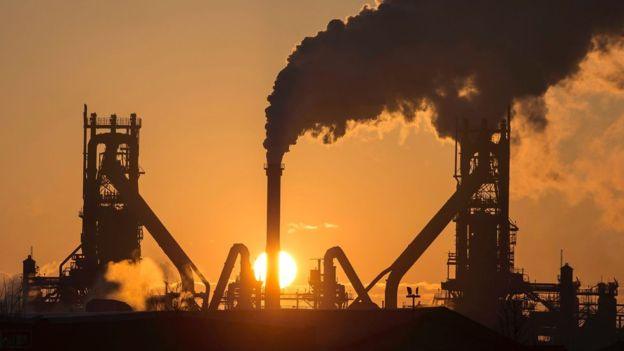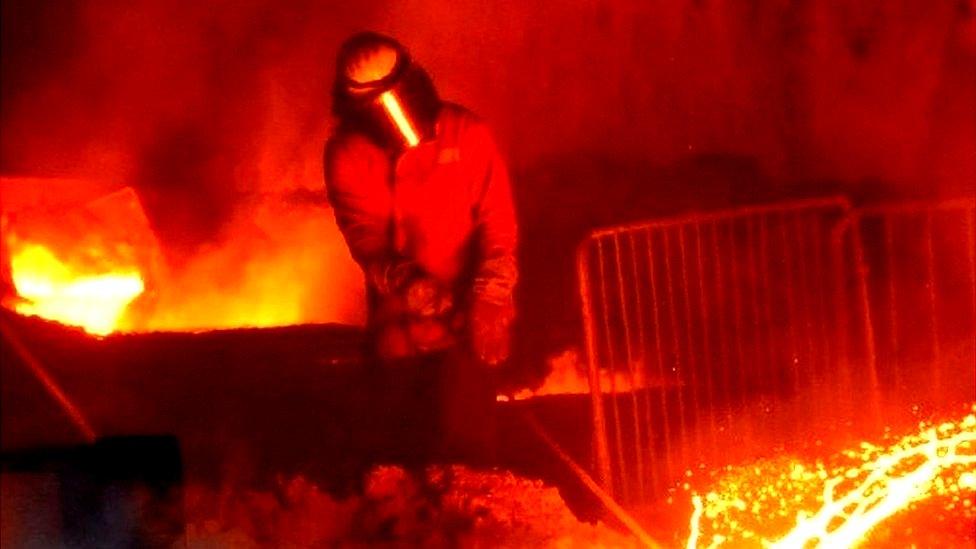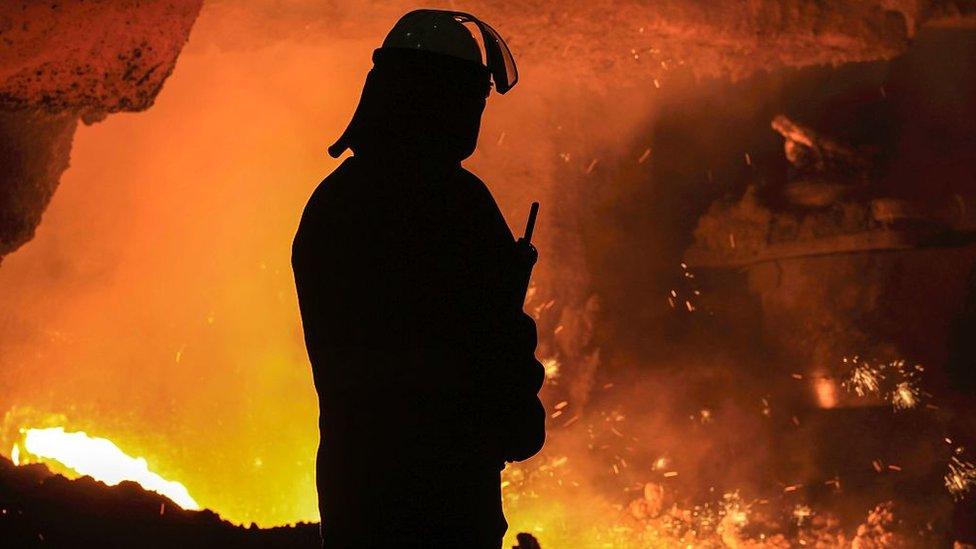Why a Chinese firm really bought British Steel
- Published

In the warm afterglow of Monday's announcement that Chinese steel maker Jingye had agreed to buy British Steel, workers and unions were grateful and optimistic that the new owners would pour more than £1bn into the struggling company, securing 4,000 jobs at Scunthorpe and 20,000 in the supply chain.
This little-known company was making big promises to refurbish the blast furnaces, expand production, potentially expand the workforce and return the site to profit.
Everyone - including Business Secretary Andrea Leadsom - was smiling.
But in some quarters, heads were being scratched as to why Jingye thought it could succeed where many others had failed or decided not to try.
It's true that Jingye's promised £1.2bn investment dwarfs the estimated £20m the previous owners - private investment firm Greybull Capital - were prepared to put in.
But the government's previous preferred bidder Ataer Holdings - an offshoot of the Turkish military pension fund - also said it would invest heavily.
Government sources told me at the time that the Turkish bid was "hands down" the best bid.
That means better than Jingye, who the previous Business Secretary Greg Clark met three times in the UK, and once in China.
However, after months of having full access to the plant and the books, Ataer's bid stalled.
Which begs the question - what is it about loss-making Scunthorpe that the Chinese like and others don't?
'Made in the UK'
There are several possible answers.
First, the official version. The businesses are genuinely complementary. Scunthorpe is a specialist in rail tracks and other "long products" like reinforcing bars used in construction. Jingye doesn't make these. British Steel gives it new products and new markets.
Second, Chinese steel is not welcome in all parts of the world.
Indeed, it was the flood of steel coming from Chinese overproduction that saw the UK steel industry have a near death moment in 2016 before strong EU anti-dumping measures that imposed big tariffs on Chinese steel imports offered the industry a degree of protection.
Some industry watchers are suggesting that Scunthorpe, and British Steel's plant in Hayange in France would allow Jingye to import raw steel from China, finish it into higher value products and stick a "Made in UK" or "Made in France" badge on it.
Peace of mind for big customers like Network Rail in the UK or French ones like SNCF. It would also make exports to the US quite a bit easier than they are now.
Third, and connected to the second, there is some valuable intellectual property and expertise that Jingye is acquiring along with the sites themselves.
Sources close to Jingye told the BBC that there was still some work to do to clinch the deal and so did not want to comment at this stage. That's fair enough and a useful reminder this deal is not yet in the bag.
There are three sets of hoops to jump through.
First, competiton tests. That's not thought to be a major problem as there are other big players in the market such as Thyssen, Arcelor Mittal, and Tata.
Second, union approval. The positive and deeply relieved noises coming out of GMB and Community on Monday make it likely that will be forthcoming.
Third, the approval of the French government. That may be trickier. While the UK government does not consider steel-making a critical industry enabling it to block a takeover, France has always adopted a more cautious, more protectionist stance.
SNCF is a major customer of the Hayange plant and company sources acknowledge that this will be the toughest hurdle to clear.
It's not just unclear as to why this deal happened. There still remains some element of doubt, perhaps small, as to whether it will happen at all.
- Published11 November 2019

- Published7 November 2019

